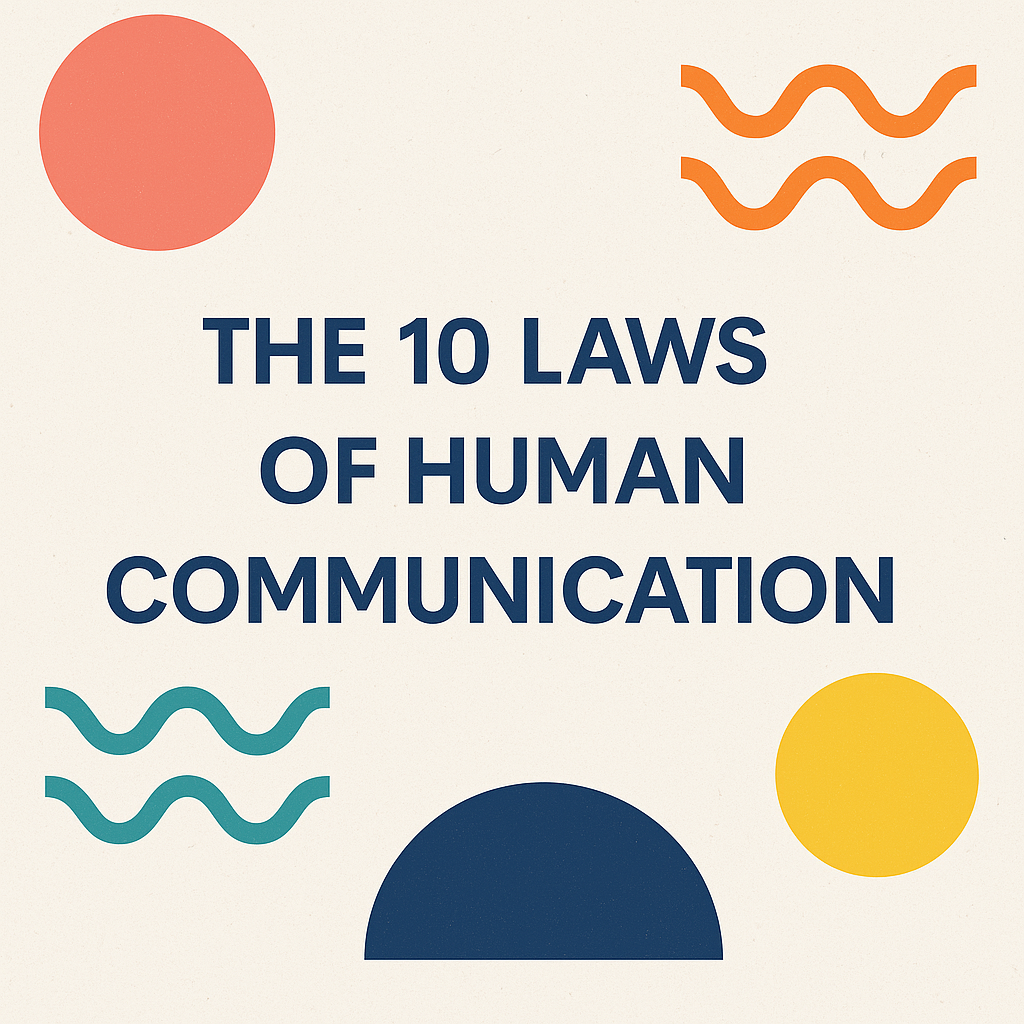THE 10 LAWS OF HUMAN COMMUNICATION
(source: Hugh Mackay, 1998)
- It’s not what the message does to the listener, but what the listener does with our message that determines our success as communicators.
- Listeners generally interpret messages in a way which makes them feel comfortable and secure.
- When people’s attitudes are attacked head-on, they are likely to defend those attitudes, and in the process reinforce them.
- People pay most attention to messages which are relevant to their own circumstances and points of view.
- People who feel insecure in a relationship are unlikely to be good listeners.
- People are more likely to listen to us if we also listen to them.
- People are more likely to change in response to a combination of new experience and communication than in response to communication alone.
- People are more likely to support a change which affects them if they are consulted before the change is made.
- The message in what is said will be interpreted with respect to the how, when, where and by whom it is said.
- Lack of self-knowledge and an unwillingness to resolve our own internal conflicts makes it harder to communicate with other people
